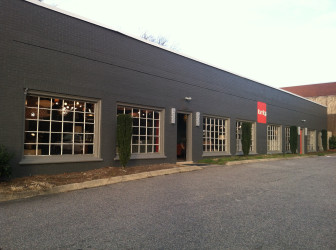A year after Raleigh established a second revolving loan pool for city businesses, the fund is almost ready to make its first loans. The new fund, which was created out of a city-run program to help new downtown businesses that couldn’t get traditional loans, will be available to small businesses across the city.
Raleigh created its previous $300,000  [/caption]
[/caption]
A year ago, City Council members voted to roll the outstanding loans into a new revolving fund run by the Raleigh Area Development Authority and make the loans available to small businesses throughout the city.
“Our goal is to have at least $250,000 on hand before we start marketing the program to the banks,” said RADA’s Wallace Green, adding that he hopes to start marketing “some time in the first quarter, optimistically.”
The Raleigh Economic Development Partnership’s website still features a web page devoted to the loan program but Business Assistance Program Manager Luther Williams said the authority has passed from the partnership to RADA.
Green said RADA’s new responsibilities include collecting and servicing the original loans; more than $100,000 has already been repaid. RADA is also handling the sale of four vacant city-owned homes on Whistle Court, a property the city originally purchased for a stormwater construction project.
“We borrowed funds from our bank to rehab the first two,” Green said. “We currently have one of those under contract waiting for a closing date. The proceeds after expenses will go into the loan fund” and some of it will go into rehabbing the third and fourth homes.
“Now we’re back into residential sale season, our hope is that within the first six to eight months of this year, we will sell all four houses,” he said.
Green said RADA has spent the past year marketing the homes, drawing up loan policies and creating the RADA Community Investment Corporation to manage the revolving fund. When the lending pool reaches $1 million, RADA can apply to the U.S. Treasury to become a “community development financial institution.” That would entitle it to apply for up to $2 million in federal funding it can use for more loans.
Green said that when RADA starts lending money, it will follow similar guidelines to Raleigh’s predecessor loan pool. The emphasis will be on helping established businesses rather than start-ups, and RADA will work with banks, for example, by providing added money for marginal loans.
“Our goal is to be a community small business lender in partnership with cities and banks,” Green said. “Certainly not to compete with banks.”